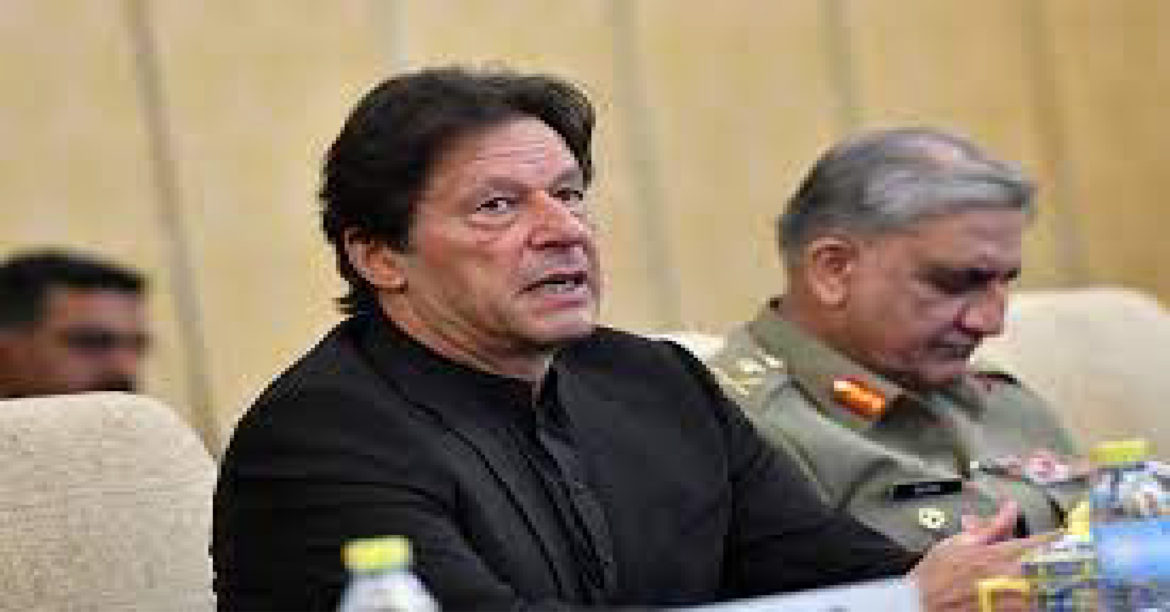On March 10, 2022, Pakistan’s Opposition parties filed a No Confidence Motion against Prime Minister Imran Khan with the National Assembly Secretariat. Under the no confidence motion, Pakistan’s prominent opposition MPs presented two documents: one to requisition the National Assembly, which is currently not in session, and the other asking for a no-confidence vote against Prime Minister Imran Khan. This move has caused significant disruption in Pakistan’s political environment. Everyone is eager to learn the outcome of the vote on the no confidence motion.
According to reports, the request was signed and authorized by over 140 members of the National Assembly. According to the regulations, at least 68 Members of Parliament’s signatures were necessary to compel the Speaker to call a session, which should be summoned within three to seven days to vote on a no-confidence resolution. To topple the Prime Minister and his government, the opposition required the backing of 172 members in the House of 342.
An Agenda Behind It
All political parties are united against PM, to prevent him from finishing his five-year term and weakening his candidacy for the 2023 elections. Suhail Warraich predicts that if the No-Trust Motion succeeds and Imran Khan is no longer Prime Minister, Shehbaz Sharif would be Prime Minister till the 2023 elections.
PM, on the other hand, is confident that the opposition will fail to achieve its nefarious objectives. Khan further stated that he is prepared for anything the opposition throws at him. “The powerful want it and threaten to destabilize the government if they don’t have it, but I won’t give it to them as long as I am alive,” he stated.
Effects on Pakistani Economy
Opposition groups criticize Khan’s government for uncontrolled inflation, which has broken the backs of the country’s poor, while Khan accuses them of attempting to depose him because he refused to condone the alleged corruption of the major opposition figures. The opposition’s proposal, according to Interior Minister Sheikh Rashid, will fail. “They’ll bite the dust, and it’ll be their (the opposition’s) historic defeat,” he said. The opposition was allegedly backed by “many foreign hands,” according to the premier. He went on to say that he had finished his preparations and that a “captain doesn’t disclose his plans all at once.”
He further claimed that MPs were offered Rs180 million in bribery. “And I advised them to take the money from them and give it to the underprivileged,” the prime minister said.
The prime minister stated once more that the Pakistan Army was on Pakistan’s side and would never assist “these thugs.” “Because the opposition lacks popular backing, they claim that the establishment is on our side.” The premier went on to say, “What happens if the no-trust initiative fails? A mind game is currently being played, and I am the master of mind games.”
The Prime Minister’s newest statement, cutting petrol and power rates in the face of growing global energy costs, is part of an effort to soothe public discontent. Can his frantic action, however, save the situation? Perhaps not. Instead, there is a risk that the conclusion would exacerbate the financial crisis, weakening the government even worse. Khan might be perceived to be stumbling under pressure.
His lengthy address to the country on February 28 raised significant suspicions about his government’s strategy to deal with challenges. He spoke on a variety of topics, ranging from international policy to economics. Previous rulers were routinely blamed for everything wrong in the country. The speech was a perilous blend of enthusiasm and naivete.
His decision to reduce fuel and power prices, on the other hand, is viewed as a total reversal of his government’s previous actions taken as part of the agreement with the International Monetary Fund concerning the latter’s newest funding programme. The U-turn happened barely a month after Pakistan got a new $1 billion tranche from the multinational agency.
Furthermore, many analysts believe that the subsidy will not improve the inflationary situation in the short run. In reality, these initiatives have the potential to widen the budget deficit even more. The total impact of the Prime Minister’s promised subsidies is projected to be more than 250 billion Pakistani rupees. To bridge the budget gap, the government would have to borrow additional money.
Hard Hitting Speech by PM in Mailsi
Prime Minister Imran Khan cautioned the opposition on Sunday to brace themselves for what he would do if their planned no confidence motion against him failed. The prime minister gave a hard-hitting speech today at a public meeting in Vehari district’s Mailsi tehsil, addressing the planned opposition move against him. “I entered politics 25 years ago to oppose them (his corrupt political rivals). I will fight them till the day I die. I’ll confront them, and I’m fully prepared for anything they hurl at me “He said. “But I have a question for the band of thieves: Are you prepared for what I will do to you if your preparations for a no-trust motion fail?”
With the submission of a no-trust resolution against Prime Minister Imran Khan by the joint opposition after weeks of political maneuvering and contemplation, the day of reckoning for the PTI administration may be approaching. The issue now is whether he will withstand this movement.
Even if the opposition bears the burden of proving that Mr. Khan has lost the confidence of the National Assembly, the odds appear to be stacked against him for the time being. Mr. Khan, who faces a greater challenge from inside his party, has a maximum of 21 days to defeat the motion.
Unpredictable Consequences of this Political War
The overall picture indicates that Pakistan’s economy will suffer in both scenarios. It will divert PM’s attention away from other pressing issues that must be addressed first. Furthermore, Pakistan’s adversaries would have an opportunity to take advantage of this critical political position. The Russia-Ukraine war, as well as the worldwide surge in petroleum and energy costs, are certainly fostering uncontrolled inflation, which is important to manage at this time.
The speaker is required by the Constitution to convene the Assembly session not more than 14 days after receiving the requisition, which has also been submitted, for a vote on the resolution after three days and no later than seven days from the start of the sitting.
The next three weeks will be a test not just of Mr. Khan’s ability to reclaim the support of unhappy PTI MPs and keep his supporters on his side, but also of the opposition parties’ ability to maintain the critical support of dissident treasury members until the very end.
If you have any queries related to current construction news, feel free to send email at info@tameerkaro.com. For construction related inquiries visit our website: tameerkaro.com

